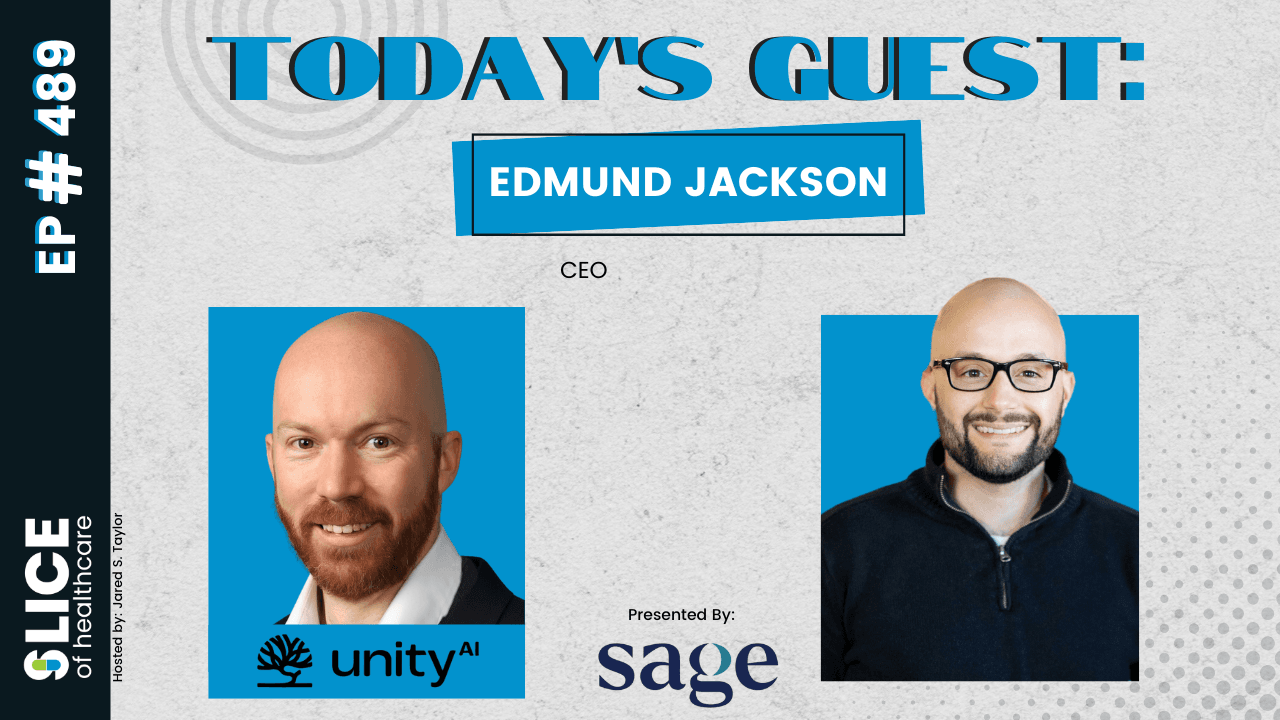
Details
Episode Details:
Join us on the latest episode, hosted by Jared S. Taylor!
Our Guest: Edmund Jackson, CEO at UnityAI.
What you’ll get out of this episode:
- Edmund Jackson’s Journey: From Wall Street quant to Chief Data Officer at HCA Healthcare, to co-founding UnityAI.
- Core Issue in Healthcare: It’s too hard to practice medicine today due to system complexity—AI offers a path to simplify and optimize operations.
- Low-Hanging AI Applications: AI scribes, radiology image analysis, and revenue cycle support are already providing value.
- UnityAI’s Focus: Going beyond features to create a comprehensive platform for “quantitative operations” in healthcare.
- Future Outlook: AI will dissolve traditional tech frameworks and shift healthcare from sick-care to wellness through continuous, AI-powered health monitoring.
Watch
Listen
Read More
A Founder’s Vision Rooted in Data
Edmund Jackson’s transition from finance to healthcare was driven by a passion for data and operations. As Chief Data Officer at HCA Healthcare, he saw firsthand the inefficiencies and pain points in hospital systems. UnityAI was born from a simple but powerful question: How can we use AI to improve healthcare operations?
The Real Problem: Operational Complexity
Healthcare isn’t broken because the problems are unsolvable; it’s broken because of how we’ve tried to solve them. From scheduling and staffing to billing and patient movement, the system has become too complex. Jackson compares large hospitals to airports trying to land 1,000 planes with no air traffic controller—chaos without centralized intelligence.
AI’s Immediate Impact
According to Jackson, AI is already showing value in three key areas:
- AI Scribes: Reducing the documentation burden on physicians through ambient listening.
- Radiology: Providing baseline reads on images to support radiologists.
- Revenue Cycle: Automating billing and appeals to reduce manual work.
Beyond Features: UnityAI’s Holistic Approach
Jackson makes a critical distinction between products and platforms. Many AI companies today offer features—like AI scribes—that will eventually be absorbed into larger systems like EMRs. UnityAI is different. Their goal is to model entire healthcare systems digitally to optimize operations. They call it “quantitative operations,” using both math AI and language AI to plan and communicate solutions across stakeholders.
The Road Ahead: From Sick Rescue to Wellness
Looking 10 years ahead, Jackson predicts AI will integrate seamlessly into daily healthcare interactions. Devices will continuously collect health data, and AI will interpret it to guide both patients and providers. This shift could transform healthcare from reactive sick-care to proactive wellness.
Barriers and Solutions
Despite the promise, Jackson notes that healthcare lags due to legacy tech and regulatory inertia. His three steps to make healthcare AI-first:
- APIs: Enable data sharing through open, standardized APIs.
- Modern Tech Stack: Replace outdated systems with internet-like infrastructure.
- Innovation-Friendly Environments: Allow experimentation and iterative development within care settings.
What’s Next for UnityAI
UnityAI continues to grow, aiming to unify disparate operational functions into a cohesive, intelligent system. The mission: to elevate healthcare operations to the next level with a system-wide, AI-powered view.
Finally, to learn more about our guest and their company please use the links below:
- Company LinkedIn - Company Website -
Also, be sure to follow Slice of Healthcare on our social channels:
- Website - LinkedIn - Twitter - YouTube - Newsletter -


